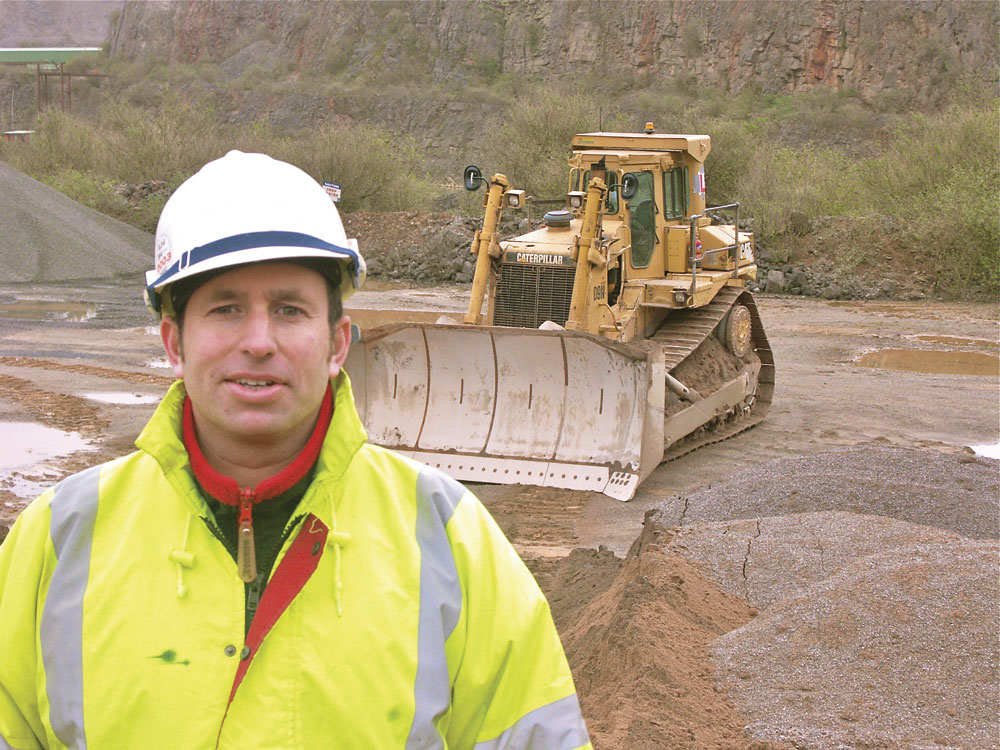Extractive Industry Training to Develop Competence

By Steve Parfitt, technical manager, Mentor Training
In August 2011 the Mineral Products Association (MPA) released a document, ‘Safer by Competence’, to help members understand their responsibilities and to ensure all member companies’ staff are carrying out their duties to the safest, most efficient standard, including within all subsidiaries, even if they fall into another industry sector.
The MPA has defined competence as: ‘the ability to apply knowledge, understanding, practical and thinking skills to achieve effective performance to the standards required in employment. This involves solving problems and being sufficiently flexible to meet changing demands’. The Association recommends that ‘competence’ is proven via an NVQ, SVQ or QCF.
Training standards, certification and value for money has never been discussed more since card schemes and the need to prove competence came to the fore following the introduction of the Quarries Regulations 1999. Professor Löfstedt stated in his report, released in November 2011, that ‘the industry’s current understanding of competence may warrant extension, to develop an ‘industry-specific’ definition, and broadening, to encompass both situational awareness and the sustaining of appropriate behaviours’. His report also suggested that industry should consider establishing a single Construction Industry Card Registration Authority as an independent agency.
As the UK’s leading provider of training and associated services for all types of material- handling equipment and workplace transport, Mentor Training have always sought to apply all relevant guidance and incorporate best practice within their training courses. Wherever appropriate, acts and regulations, such as the Health and Safety at Work Act 1974, Provision and use of Work Equipment 1998, Management of Health and Safety at Work Act 1999, Personal Protection Equipment at Work Regulations 1992, Control of Substances Hazardous to Health 1999 and Quarries Regulations 1999 etc, are used to underpin training.
Helping the industry meet its targets
To enhance industry operator training and align with MPA guidance, Mentor have recently undertaken the major task of fully mapping courses to the relevant units of the appropriate National Occupational Standard (NOS) per category of machine. By adopting this stance, course content has not only been updated in line with best practice, but all criteria are now covered in both theoretical and practical training.
These courses and their instructors provide individuals with the underpinning knowledge and operational capabilities to allow them to use equipment safely and proficiently. This, in turn, assists companies in the more general competencies of safety, efficient working practices and environmental and quality requirements within the workplace. All of this is achieved by working closely with customers to include company procedures, safe systems of work and documentation within their training courses.
With the UK economy endeavouring to recover from some of the toughest times experienced in many generations, it is vital to understand the need to offer more than just a quality training course. Customers’ demands and requirements are of paramount importance and, by offering a complete training and support service, industry targets can be met and, whenever possible, surpassed.
New courses
While continually increasing their portfolio of mobile plant training courses in line with new developments within the industry, Mentor are also keen to consult with customers and industry to provide courses to meet their individual requirements. One such course, recently introduced, is for mobile crushing and screening, which is also mapped to the appropriate NOS.
The mobile crushing and screening course fully covers the safe operation and daily maintenance of these increasingly commonplace machines. Using relevant guidance and legislation as a foundation, the course covers the potential accidents and risks associated with using mobile crushers and screeners.
The course provides an introduction to jaw, cone, gyratory and impact crushers, including use of the manufacturer’s manual, pre-use checks, start-up, manoeuvring and safety hazards such as machine blockages. Machine shutdown, transportation and environmental issues are also covered in detail.
Another new course recently introduced is light-vehicle training. This programme provides an in depth understanding of 4x4 vehicles and the hazards involved in their operation in quarries and landfill sites. The course incorporates health and safety legislation, pre-use inspection and a detailed look at light-vehicle control and use in a working environment. General and quarry-specific driving hazards, such as stability and negotiating slopes, are covered to ensure operatives can safely deal with off-road terrain. An option of trailer towing is also available.
All training courses are carried out by qualified industry instructors who have undergone accredited training in instructional techniques and skills assessment. Courses are usually held at customers’ own sites to allow for site-specific/operational training.
Mentor provide operator training courses for a wide range of mobile plant used within the quarrying industry. All the courses are designed to provide individuals with the operational capabilities to make them safe, efficient and effective operators and to support the industry in achieving its stated goal of zero incidents and a fully competent workforce.
For further information visit: www.mentortraining.co.uk


